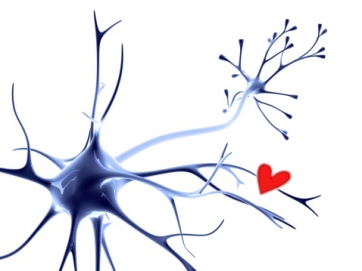

Han beter sig så konstigt nuförtiden!
Hon lyssnar inte på vad jag säger!
Jag känner mig ensam i mitt äktenskap, hon är ju inte alls som förr.
Jag har fått hem ett barn från sjukhuset, inte den man jag gifte mig med.
Jag är helt slut, jag vet inte hur jag skall orka?
Förändring
Det krävs inte så stor förändring i hjärnan eller någon grav kognitiv svikt förrän mer ”barnsliga” delar av personen tar över i beteendet. Det kan räcka med en pytteliten stroke, en smäll i huvudet, hjärnskakning, ett kort hjärtstopp etc. Personen förändras och kan bli grinig, självisk, trött, deprimerad och en stor utmaning att leva med. Detta kan leda till att den anhöriga/e tar ut sig och ”går i väggen”. Kraven på att klara allt själv blir övermäktiga. Gamla äktenskapliga konflikter förstoras.
Barn
Att vara barn till en person som får denna förändring i sitt sätt att tänka och bete sig kan vara förödande innan man får perspektiv på vad som händer. Yngre barn lägger ofta skulden på sig själva och lite äldre barn får plötsligt en extra tyngd att bära samtidigt som det vanliga unga vuxenlivet skall levas och blomma ut.
Att råda bot
på dessa situationer kräver ofta en dialog kring vad som kan göras, bör göras, och att inte vara helt ensam i det. Situationen är som den är, men stöd och strategier kan behövas utifrån.
Neuropsykologen spelar en viktig roll
i att stödja anhöriga under rehabiliteringsprocessen. Anhöriga kan uppleva betydande stress och förändringar i livet som ett resultat av deras nära och käras skada/sjukdom.
Här är några sätt som neuropsykologen kan arbeta med patientens anhöriga under rehabiliteringen:
- Utbildning: Neuropsykologen kan ge anhöriga information om hjärnskadan/sjukdomen och dess effekter, inklusive de kognitiva och beteendemässiga förändringar som kan uppstå. Detta kan hjälpa anhöriga att förstå vad deras nära och kära upplever och hur de kan stödja dem.
- Stöd: Neuropsykologen kan erbjuda emotionellt stöd till anhöriga, vilket kan inkludera rådgivning eller terapi. Detta kan hjälpa anhöriga att hantera stressen och de emotionella utmaningar som kan uppstå som ett resultat av deras nära och käras skada/sjukdom.
- Strategier och tekniker: Neuropsykologen kan lära anhöriga strategier och tekniker för att hjälpa dem att hantera de kognitiva och beteendemässiga förändringar som deras nära och kära kan uppleva. Detta kan inkludera strategier för att hantera minnesproblem, svårigheter med uppmärksamhet, och andra kognitiva utmaningar.
- Samarbete: Neuropsykologen kan arbeta tillsammans med anhöriga för att utveckla en individuell rehabiliteringsplan för patienten. Detta kan inkludera att arbeta tillsammans för att sätta upp mål och utveckla strategier för att uppnå dessa mål.
Det är viktigt att notera att varje individs rehabiliteringsprocess är unik och anpassas efter individens specifika behov och mål.

He’s acting so strangely these days!
She does not listen to what I say!
I feel alone in my marriage, she is not at all like before.
I brought home a child from the hospital, not the man I married.
I’m completely exhausted, I do not know how to cope?
Organic change
It does not require much organic change or injury to the brain until more immature parts of the personality take over behavior-wise. A tiny stroke, a blow to the head, concussion, a short cardiac arrest, etc. The person changes and can become grumpy, selfish, tired, depressed and a great challenge to live with. This can be pretty overwhelming for the relative/spouse. The demands of having to do everything yourself become quite a task. Old marital conflicts might be magnified. The burnout is looming.
Child
Being the child of a person who has this abnormal change in their way of thinking and behaving, can be quite devastating before a new perspective is gained. Underage children often place the blame on themselves and slightly older children suddenly have extra weight to carry just as young adult life is about to be lived and to blossom.
Navigating
these situations often requires dialogue about what can be done, and what should be done. It is also crucial not to be completely alone in it. The situation is the way it is, but support and strategies may be needed from an outside source.
The neuropsychologist plays a crucial role
in supporting the patient’s relatives during the rehabilitation process. Relatives may experience significant stress and life changes as a result of their loved one’s injury/illness. Therefore, it’s important that the neuropsychologist works with relatives to help them understand and manage these changes.
Here are some ways the neuropsychologist can work with the patient’s relatives during rehabilitation:
- Education: The neuropsychologist can provide relatives with information about brain injury/illness and its effects, including the cognitive and behavioral changes that can occur. This can help relatives understand what their loved one is experiencing and how they can support them.
- Support: The neuropsychologist can offer emotional support to relatives, which may include counseling or therapy. This can help relatives manage the stress and emotional challenges that can arise as a result of their loved one’s injury/illness.
- Strategies and Techniques: The neuropsychologist can teach relatives strategies and techniques to help them manage the cognitive and behavioral changes their loved one may be experiencing. This can include strategies for managing memory problems, difficulties with attention, and other cognitive challenges.
- Collaboration: The neuropsychologist can work together with relatives to develop an individual rehabilitation plan for the patient. This can include working together to set goals and develop strategies to achieve these goals.
It’s important to note that each individual’s rehabilitation process is unique and tailored to the individual’s specific needs and goals.

